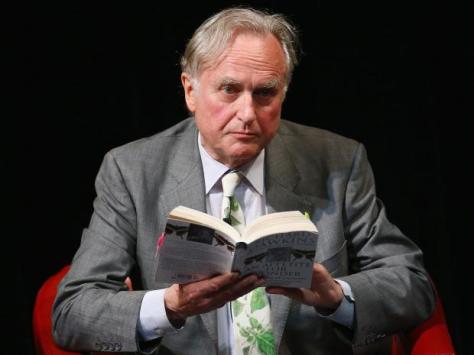
Some people I talk to are amazed that I’m not as keen on multiculturalism as they are. What is there not to like about the variety of cuisines, the interesting clothes, the nice people, the doctors, the selfless NHS nurses who are only there for our benefit, not for their own? Think of how much you can learn from these strange and exotic people! The suggestion is that British people and British life is boring and needs some ‘vibrancy’.
It is claimed that immigrants bring something new to our country while also assimilating. I have never understood how this works. Surely the more you assimilate, the less diverse you become?
A friend once tried to convince me that Britain would stagnate and be peopled by inbred morons if their weren’t some fresh blood and fresh ideas from abroad. Yet monocultural, inbred Britain, with a little help from the rest of Europe, practically invented the modern world with all its inventions, discoveries and sports.
But let’s accept my friend’s claim and assume that Britain does indeed benefit from mass immigration. Can the millionth Jamaican to arrive in Britain teach us anything that the first 999,999 didn’t? Just how many Jamaicans have to arrive before everything they can teach us has been exhausted? What happens when they assimilate and become indistinguishable from the rest of us? Do we have to import some more to experience the diversity again? Could we instead just go on a two-week holiday to Jamaica? That’s probably as much diversity as anyone could want until the next year. Or maybe we could watch a documentary about Jamaica on TV in the comfort of our own home and reap the benefits of what they have to teach us the easy way?
Still, I’m sceptical about just how much mixing of the races there is in reality. I don’t have a single black or brown friend, though I do have a couple of Indian Facebook friends. Do they count, considering we never actually see each other? Am I unusual in this? Do other people have lots of unassimilated immigrant friends? I say unassimilated because the Indians I sometimes meet at the golf club might just as well be white. What is the point of having Indians just like whites? Where is the cultural enrichment I was promised?
Still, not everyone assimilates so successfully. Take my hometown, Leicester. Ghettos exist which are filled with ethnically homogeneous immigrants. Maybe these people are genuinely different and could show me something new but how would I know unless I went into their ghetto? And of course there are some second and third generation British Muslims who are so antipathetic to assimilating that they would rather blow us up than integrate, much to the alleged surprise of their parents. They had absolutely no idea! Really? So whose fault is that? Ours again?
Last week I told a work colleague that I was against multiculturalism. He couldn’t understand it. After all, I’m from Leicester, famous for its multiculturalism. There is this strange idea that some people have that only those who have never been exposed to multiculturalism dislike it. They think this is because people allegedly fear what they don’t know. They believe that those who experience multiculturalism quickly see that there is nothing to be afraid of and are won round. They believe that statistics bear this out, namely, that people who live in a multicultural area feel more positive towards it than those who live in the country. Yet there is a simple reason for this. The white Brits who don’t much like multiculturalism have already moved away to areas where other white people live. Only those who either don’t mind multiculturalism or can’t afford to escape it are left behind to fill in questionnaires, from which leftist social scientists draw their false conclusions.
My colleague’s definition of a Brit was anyone born and raised in Britain. This would of course include Michael Adebolajo, the killer of Lee Rigby, as well as many of the Jihadists who left Britain to fight for ISIS and woman who wear burkas in Tescos. I just don’t view these people as British. Nor do I think that someone who doesn’t speak English at home is as British as me, nor someone who feels no ancestral connection to Britain and its history. I told my colleague I think of British nationality as a cluster concept which indeed includes where you were born and raised but also other things like your ethnicity, language, religion or lack of it, culture, family history, collective memory and sense of allegiance. Oh, and last and least on my list is having a British passport. The more of these boxes you tick, the more British you are in my book.
My colleague said that the unique thing about British culture was its ability to incorporate many foreign people and alien cultures into itself, thereby altering the incoming people and adding something new and positive to Britain in the process. Britain to him was like a black hole: able to absorb everything that comes within it’s gravity without itself changing. And if it does change then it is always for the better. I think this is called ‘flattering to deceive’. By saying something positive-sounding about Britain, namely, that its chief defining characteristic is its inclusiveness, he was hoping that I might not notice the unspoken negative corollary: by excluding nothing and no one, the term ‘British’ becomes so all-encompassing as to become totally meaningless.
My colleague said he had a grandparent or great-grandparent who was Polish and disliked the idea that this might make him less than 100% British in my eyes. It didn’t. There was nothing about him which wasn’t archetypally British. And after all, I am one-eighth Irish and Ireland isn’t technically part of Britain, though it was when my ancestors lived there.
So was I suggesting that only people whose British ancestry can be traced back to ancient times are authentically British? No. I was saying that in my opinion ethnicity is one aspect of one’s nationality. For example, the man in the picture below, Jared Taylor, the white separatist, was born and raised in Japan and he speaks perfect Japanese. Does this then make him as Japanese as the woman next to him? Not in my eyes.


If you want to say that ethnicity counts for absolutely nothing when defining nationality that’s up to you. It’s just not the way I see things.
I think my colleague might object that Britain and Japan are very different countries: one is multicultural and multi-ethnic while the other is as much of a mono-culture as you are likely to find. That’s why we associate ethnicity with Japanese nationality and not with British. I think I would agree with this. But Britain used to have the same level of homogeneity as Japan before the British people, against their will, had mass immigration foisted upon them. This would be like the Chinese forcibly settling a couple of million Han Chinese in Tibet and then declaring Tibet to be a multicultural country since many of its inhabitants are not native Tibetans. Well, duh, of course because you just settled them there, remember?

Would the Tibetans be wrong to view these Han Chinese children as less Tibetan than their own children? It doesn’t strike me as outrageous that they might.
Of course these new inhabitants might become model citizens and win over the natives. But what if the Han Chinese consistently outperformed the natives at school and in the workplace and began to occupy all the important positions of power? Surely this would lead to some resentment on the part of the natives. Just think of the high performing Ashkenazi Jews of eastern and central Europe during the 19th and 20th centuries.
Conversely these Han children might underperform at school and grow up to have higher rates of delinquency, welfare dependency, out-of-wedlock pregnancies, drug addiction and other forms of antisocial behaviour which would drag the already weak Tibetan economy down further. These Han might even complain that their underperformance was due, not to their own fecklessness and ineptness, but to structural inequalities in Tibetan society.
Neither of these imagined outcomes would be conducive to ethnic harmony but since one ethnic group almost invariably outperforms another, ethnic conflict is almost guaranteed.
It seems to me that both my colleague’s and my positions become ridiculous when taken to an extreme. Like any normal person I would much rather live next to the Muslim Haras Rafiq than to the wazzock pictured next to him so clearly neither ethnicity nor religion is everything. On the other hand, to say that ethnicity counts for nothing in an island nation whose genome changed very little for the 6,000 years preceding the Second World War strikes me as doctrinaire.


I think our difference of opinion is due to our ages: he is 27 and all he has ever known is multicultural Britain and at school and university all he ever heard was in favour of the state ideology.
I am 58 and the cheer-leaders for multiculturalism hadn’t yet got into their stride while I was at school. Even now I don’t understand why Britain had to be changed against the will of its people, nor why multicultural Britain is considered superior to the mono-culture it replaced.

As you say, your friend was completely wrong because Britain achieved all sorts of amazing things between 1500 and 1950 with a population that was about 99.5% white British. It’s true that we probably wouldn’t have achieved anything much if the population had been genetically very similar indeed, such as 100% Celtic or 100% Angle, but of course we’re a complete mixture of various northern European tribes such as the Saxons, Picts, Angles, Britons, Celts, Norman, Dutch, German, Danish, etc. I think that as long as you have a bit of a mixture of that type, there won’t be a problem with “inbreeding”. You don’t need people from other parts of the world like Africa, Asia, South America to achieve the required level of diversity. Local diversity is enough.
I’m not convinced that genetic variety is a good per se. I think that as long the British tribes had a large enough population then mixing with people from different tribes probably wouldn’t have brought any benefits. So if the Angles and the Saxons had never interbred I don’t think anything would have been lost. Of course, if you mix your genes with those of a high achieving tribe then that’s a good move – but a poor one for the high achieving tribe.
Someone who writes brilliantly on this subject is Theodore Dalrymple. He’s not very popular because he’s been successfully branded by the liberal left as a typical conservative with “old fart” attitudes to life, which is actually not true at all if you bother to read his work in depth.
Yes, I’ve been a fan of Dalrymple for many years. On several occasions he has made me realise that I have unthinkingly accepted some coarse or ugly behaviour as normal and inevitable when in reality it was neither.